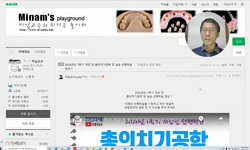Global economy is in serious crisis due to COVID-19 Pandemic. This crisis is different from the past one in that it is not limited to a specific region but is occurring globally and that it is expected to take a considerable amount of time to return t...
http://chineseinput.net/에서 pinyin(병음)방식으로 중국어를 변환할 수 있습니다.
변환된 중국어를 복사하여 사용하시면 됩니다.
- 中文 을 입력하시려면 zhongwen을 입력하시고 space를누르시면됩니다.
- 北京 을 입력하시려면 beijing을 입력하시고 space를 누르시면 됩니다.

코로나19와 공급사슬관리 전략의 혁신 요구에 관한 고찰: 글로벌 컨설팅 기업들의 제안을 중심으로 = Consideration of COVID-19 and Innovation Demands in Supply Chain Management Strategies: Focusing on Proposals from Global Consulting Firms
한글로보기https://www.riss.kr/link?id=A107021828
- 저자
- 발행기관
- 학술지명
- 권호사항
-
발행연도
2020
-
작성언어
Korean
- 주제어
-
등재정보
KCI등재
-
자료형태
학술저널
-
수록면
225-236(12쪽)
-
KCI 피인용횟수
6
- 제공처
-
0
상세조회 -
0
다운로드
부가정보
다국어 초록 (Multilingual Abstract)
Global economy is in serious crisis due to COVID-19 Pandemic. This crisis is different from the past one in that it is not limited to a specific region but is occurring globally and that it is expected to take a considerable amount of time to return to the pre-pandemic level. The main cause of the rapid economic downturn is the disruption of the global supply chain. In the meantime, the supply chain management strategy was to secure a low-cost production base and minimize inventory. However, China's blockade, the global production base due to COVID-19 pandemic, is accelerating the supply chain crisis. The purpose of this study is to propose the SCM innovation strategy frame to eliminate the uncertainties expected to occur in the global supply chain and build the stable supply system. To this end, previous literature on traditional supply chain strategies and proposal reports from global consulting firms published since the outbreak of COVID-19 were reviewed, and the cases of companies that deal with SCM problems in an ecological crisis were studied based on the SCM innovation strategy frame presented as the result of this study. The main implication of this study is that as the effect of COVID-19 is expected to be prolonged, companies can only be sustainable by revising and innovating the supply chain strategy that has been established so far. In particular, for the innovation of the supply chain, companies are raising the necessity to build the supply chain platform that views and manages the entire supply chain process based on the digital technologies.
국문 초록 (Abstract)
코로나19 팬데믹이 글로벌 공급사슬을 걷잡을 수 없이 붕괴시키고 있으며 세계경제의 심각한 위기에 초래하고 있다. 이번 위기는 특정 지역에 국한되지 않고 전 세계적으로 발생하고 있다는...
코로나19 팬데믹이 글로벌 공급사슬을 걷잡을 수 없이 붕괴시키고 있으며 세계경제의 심각한 위기에 초래하고 있다. 이번 위기는 특정 지역에 국한되지 않고 전 세계적으로 발생하고 있다는 점과 팬데믹 이전의 경기수준으로 복귀하는 데에 상당한 시간이 필요할 것으로 전망된다는 점에서 과거의 통제 불가능한 위기와는 차원이 다른 수준이다. 이 같은 급속한 경기침체의 주원인은 바로 글로벌 공급사슬의 붕괴이다. 그동안 공급사슬관리 전략은 저비용의 생산거점 확보와 재고의 최소화를 달성하는 데에 있었다. 그러나 코로나19 팬데믹으로 인한 글로벌 생산기지인 중국의 봉쇄는 공급사슬의 위기를 가속화시키고 있는 것이다. 본 연구는 향후 글로벌 공급사슬 상에서 예상되는 불확실성을 제거하고 안정적인 공급체계를 구축하기 위한 SCM 혁신전략 프레임의 제시를 목적으로 한다. 이를 위해서 전통적인 공급사슬 전략에 관한 선행문헌과 코로나19 발발 이후 출판된 글로벌 컨설팅 기업들의 제안 리포트를 검토하였고, 본 연구의 성과물로 제시된 SCM 혁신전략 프레임을 바탕으로 과거 생태적 불확실성으로 인한 공급사슬의 위기 상황에 대처한 기업들의 사례를 살펴보았다. 본 연구의 주요 시사점은, 코로나19의 영향이 장기화될 것으로 예상됨에 따라 기업은 지금까지 구축해온 공급사슬 전략을 수정하고 혁신해야 지속가능할 수 있다는 것이다. 특히 공급사슬의 혁신을 위해서 기업들은 디지털 기술을 기반으로 하여 공급사슬 전체 프로세스를 조망하고 관리할 수 있는 공급사슬 플랫폼을 구축할 필요가 있다.
참고문헌 (Reference)
1 김창봉, "혈액공급체인상의 SCM도입 성공요인에 대한 연구 - 영국·일본 사례를 중심으로 -" 한국인터넷전자상거래학회 8 (8): 237-259, 2008
2 이수빈, "코로나에 희비 엇갈린 애플·삼성... ’계란‘ 나눠담은 삼성이 옳았다"
3 이재운, "애플, 아이폰12 미리 생산... 코로나19에 SCM 전략도 수정"
4 한국산업기술진흥원, "산업기술 동향워치, 2020-7호"
5 서영복, "부품 공급업체 유연성 제고의 선행요인과 기업성과 간의 관계에 대한 연구: A사와 부품 공급업체들을 중심으로" 한국경영컨설팅학회 13 (13): 37-69, 2013
6 반재인, "기업 특성에 따른 SCM전략이 기업성과에 미치는 영향에 관한 연구" 한국생산관리학회 22 (22): 197-213, 2011
7 민정웅, "글로벌 생산네트워크 및 SCM 전략의 이해" 인하대학교 정석물류통산연구원 1-125, 2012
8 양재훈, "글로벌 공급사슬의 위험관리요인과 대응방안 연구" 한국관세학회 12 (12): 459-486, 2011
9 남현정, "공급사슬위험관리 구조와 문화가 공급사슬협력을 통해 공급사슬 강건성에 미치는 영향에 관한 연구" 한국경영컨설팅학회 17 (17): 165-176, 2017
10 IMF, "World Economic Outlook"
1 김창봉, "혈액공급체인상의 SCM도입 성공요인에 대한 연구 - 영국·일본 사례를 중심으로 -" 한국인터넷전자상거래학회 8 (8): 237-259, 2008
2 이수빈, "코로나에 희비 엇갈린 애플·삼성... ’계란‘ 나눠담은 삼성이 옳았다"
3 이재운, "애플, 아이폰12 미리 생산... 코로나19에 SCM 전략도 수정"
4 한국산업기술진흥원, "산업기술 동향워치, 2020-7호"
5 서영복, "부품 공급업체 유연성 제고의 선행요인과 기업성과 간의 관계에 대한 연구: A사와 부품 공급업체들을 중심으로" 한국경영컨설팅학회 13 (13): 37-69, 2013
6 반재인, "기업 특성에 따른 SCM전략이 기업성과에 미치는 영향에 관한 연구" 한국생산관리학회 22 (22): 197-213, 2011
7 민정웅, "글로벌 생산네트워크 및 SCM 전략의 이해" 인하대학교 정석물류통산연구원 1-125, 2012
8 양재훈, "글로벌 공급사슬의 위험관리요인과 대응방안 연구" 한국관세학회 12 (12): 459-486, 2011
9 남현정, "공급사슬위험관리 구조와 문화가 공급사슬협력을 통해 공급사슬 강건성에 미치는 영향에 관한 연구" 한국경영컨설팅학회 17 (17): 165-176, 2017
10 IMF, "World Economic Outlook"
11 Fisher, M. L., "What is the Right Supply Chain for Your Product" 105-116, 1997
12 Dignan, L., "What does the New Normal look like post COVID-19? 15 CXOs answer"
13 Harris, K., "Tracking the Global Impact of the Coronavirus Outbreak"
14 Chen, I. J., "Towards a Theory of Supply Chain Management: the Constructs and Measurement" 22 (22): 119-150, 2004
15 Lee, H. L., "The Triple-A Supply Chain" 1-14, 2004
16 Khan, O., "The Impact of Product Design on Supply Chain Risk: A Case Study" 38 (38): 412-432, 2008
17 Christopher, M., "The Agile Supply Chain: Competing on Volatile Markets" 29 (29): 37-44, 2000
18 Ackermann, F., "Systemic Risk Assessment: A Case Study" 58 (58): 39-51, 2007
19 Alicke, K., "Supply-Chain Recovery in Coronavirus Times – Plan for Now and the Future"
20 Qi, Y., "Supply Chain Strategy, Product Characteristics, and Performance Impact: Evidence from Chinese Manufacturers" 40 (40): 667-695, 2009
21 Trkman, P., "Supply Chain Risk in Turbulent Environments – A Conceptual Model for Managing Supply Chain Network Risk" 119 (119): 247-258, 2009
22 Cooper, M., "Supply Chain Management: More than a New Name for Logistics" 9 (9): 1-13, 1997
23 Othman, R., "Supply Chain Management and Suppliers’ HRM Practice" 1 (1): 259-262, 2008
24 Schatteman, O., "Supply Chain Lessons from COVID-19: Time to Refocus on Resilience"
25 박근완, "SCM(공급사슬관리)에서의 관계관리 - 관계관리 변수의 속성을 중심으로 -" 한국경영학회 44 (44): 985-1012, 2015
26 김형준, "SCM 활동이 경영성과에 미치는 영향에 대한 연구" 9 (9): 111-128, 2009
27 김창봉, "SCM 프로세스혁신의 생산성 결정요인에 관한 연구" 한국생산성학회 23 (23): 165-183, 2009
28 Gunasekaran, A., "Responsive Supply Chain: a Competitive Strategy in a Networked Economy" 36 (36): 549-564, 2008
29 Wang, G., "Product-driven Supply Chain Selection using Integrated Multi-criteria Decision-Making Methodology" 91 (91): 1-15, 2004
30 Ellram, L. M., "Partnering Characteristics: A Dyadic Perspective" 6 (6): 41-64, 1995
31 Perrow, C., "Organizing to Reduce the Vulnerabilities of Complexity" 7 (7): 150-155, 1999
32 Rachel, M. J., "Lean, agile or leagile? Matching your Supply Chain to the marketplace" 38 (38): 4061-4070, 2000
33 Womack, J. P., "Lean Thinking" Simon and Schuster 1996
34 Van der Vorst, J. G. A. J., "Identifying Sources of Uncertainty to Generate Supply Chain Redesign Strategies" 32 (32): 409-430, 2002
35 Cosgrove, E., "How P&G created a ‘Ready for Anything’ Supply Chain"
36 Lund, S., "Globalization in Transition: The Future of Trade and Value Chains"
37 Speier, C., "Global Supply Chain Design Considerations: Mitigating Product Safety and Security Risks" 29 (29): 721-736, 2011
38 Simchi-Levi, D., "Designing and managing the supply chain" McGraw-Hill/Irwin 2008
39 Mentzer, J., "Defining Supply Chain Management" 22 (22): 1-24, 2001
40 Kilpatrick, J., "COVID-19: Managing Supply Chain Risk and Disruption"
41 Christopher, M, "Building the Resilient Supply Chain" 15 (15): 1-13, 2004
42 Rodriguez, P., "Building the Bionic Supply Chain"
43 Lambert, D. M., "Building Successful Logistics Partnerships" 20 (20): 165-181, 1999
44 Wisner, J., "A Structural Equation Model of Supply Chain Management Strategies and Firm Performance" 24 (24): 1-26, 2003
45 Nagel, R., "21st Century Manufacturing Enterprise Strategy" Iacoccca Institute, Leigh University 1991
동일학술지(권/호) 다른 논문
-
윤리적 가치와 소비행동의 관계에 대한 동일시의 매개역할: 텀블러 활용을 중심으로
- 한국경영컨설팅학회
- 윤한성
- 2020
- KCI등재
-
- 한국경영컨설팅학회
- 김민주
- 2020
- KCI등재
-
평가센터(Assessment Center)를 활용한 직무전문가 선발: K사의 사례를 중심으로
- 한국경영컨설팅학회
- 송지은
- 2020
- KCI등재
-
AEO 인증의 성과로서 무역업체의 생산성 변화에 관한 연구
- 한국경영컨설팅학회
- 전동화
- 2020
- KCI등재
분석정보
인용정보 인용지수 설명보기
학술지 이력
| 연월일 | 이력구분 | 이력상세 | 등재구분 |
|---|---|---|---|
| 2026 | 평가예정 | 재인증평가 신청대상 (재인증) | |
| 2020-01-01 | 평가 | 등재학술지 유지 (재인증) |  |
| 2017-01-01 | 평가 | 등재학술지 선정 (계속평가) |  |
| 2016-01-01 | 평가 | 등재후보학술지 유지 (계속평가) |  |
| 2015-01-01 | 평가 | 등재후보학술지 유지 (계속평가) |  |
| 2013-01-01 | 평가 | 등재후보 1차 PASS (등재후보1차) |  |
| 2011-01-01 | 평가 | 등재후보학술지 선정 (신규평가) |  |
학술지 인용정보
| 기준연도 | WOS-KCI 통합IF(2년) | KCIF(2년) | KCIF(3년) |
|---|---|---|---|
| 2016 | 0.63 | 0.63 | 0.62 |
| KCIF(4년) | KCIF(5년) | 중심성지수(3년) | 즉시성지수 |
| 0.58 | 0.56 | 0.784 | 0.06 |




 KCI
KCI eArticle
eArticle






